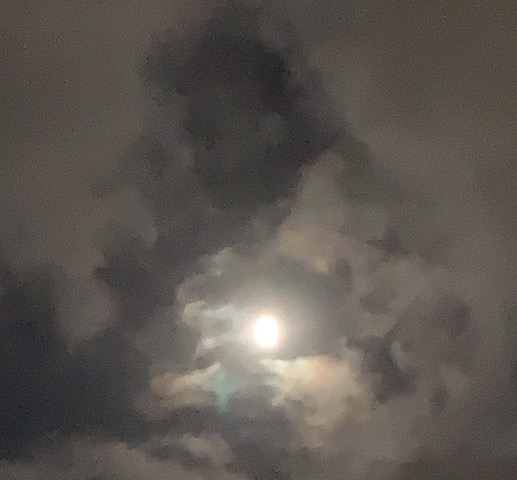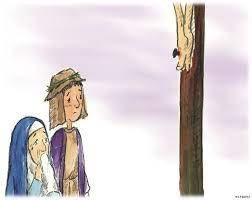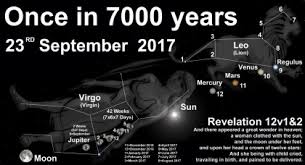“My Father, if it is possible, let this cup pass from Me;
yet not as I will, but as You will.” (Matthew 26:39)


This is a photo I personally took of Jesus appearing in the sky in 2022,in a posture of prayer(on the right)
"Now, let us dive into the seven sayings of Jesus. The first part has already been posted.
If you haven't seen it, I will provide the link."
Prayerhttps://gotokingdom.com/entry/The-Bridegroom’s-Cry-Jesus’s-Last-Words-as-a-Wedding-Prayer
"The Bridegroom’s Cry: 1.Jesus’s Last Words as a Wedding Prayer"
Shalom~In this urgent hour, when the coming of the Lord is near, I have been meditating on the love of Jesus displayed on the Cross.Once again, I was deeply moved, and through the Holy Spirit, I came to realize the heart of God the Father.I lay aside all t
gotokingdom.com
The Seven Last Words of Jesus on the Cross
The Seven Last Words are the seven prophetic utterances spoken by Jesus during His six hours on the cross.
The first three were spoken during the hours of light.
Jesus was crucified at the third hour (9:00 a.m.) (Mark 15:25).
First Word
"Father, forgive them, for they do not know what they are doing."
Countless people at the time of Jesus welcomed Him as the Messiah.
Waving palm branches, they cried out, “Hosanna to the Son of David! Blessed is the King of Israel!”
Yet within days, those same crowds cried out, “Crucify Him!”
Jesus, knowing their ignorance, interceded for them, asking the Father to forgive them.
And beyond that moment, He was also interceding on behalf of His brothers and sisters, who would later be martyred in the same way.
“They called out in a loud voice, ‘How long, Sovereign Lord, holy and true, until You judge the inhabitants of the earth and avenge our blood?’ Then each of them was given a white robe, and they were told to wait a little longer, until the number of their fellow servants and brothers who were to be killed as they had been was completed.” (Revelation 6:10-11)
Jesus declares that the full number of martyrs, those who follow the way of the Lord like the apostles, must be fulfilled.
Though we may not know where they are, even now, Jesus’ brothers are still interceding and laying down their lives as Stephen the deacon once did:
“Then he fell on his knees and cried out, ‘Lord, do not hold this sin against them!’” (Acts 7:60)
Perhaps the reason the Lord’s coming seems delayed is that the number has not yet been completed.
He may be waiting, giving more chances while there is still light.
In these final days, those who wish to be taken up to meet the Lord must beware.
If they harbor bitterness or unforgiveness toward their brothers, they may miss the first resurrection.
Second Word
"Truly I tell you, today you will be with Me in Paradise."
This was spoken to the criminal on Jesus’ right.
Everyone surrounding Jesus on the cross mocked Him.
According to the other gospels, both criminals reviled Him.
Only in Luke do we read that one rebuked the other.
“One of the criminals who hung there hurled insults at Him: ‘Aren’t You the Messiah? Save Yourself and us!’” (Luke 23:39)
This was not faith-it was mockery.
But the other criminal believed that Jesus truly was the Christ.
He knew that the Kingdom of Christ was real, and that even though Jesus was dying, He would come into His kingdom.
“Jesus, remember me when You come into Your kingdom.” (Luke 23:42)
If he had not believed, he would have said, like Peter, “Lord, this shall never happen to You!”
But Jesus had to die to fulfill the covenant promise of the Father.
How can one become King by dying?
In worldly terms, it makes no sense.
But just like Abraham, who believed that God could raise Isaac even after death:
“It was through Isaac that your offspring will be reckoned.” Abraham reasoned that God could even raise the dead. (Hebrews 11:18-19)
The suffering of the cross was foretold in Psalm 22 and by many prophets.
The cross is the judgment seat of Satan, who led humanity into sin.
It is the moment when the authority stolen by Adam is restored.
This is the spiritual war between the seed of the woman and the seed of the serpent.
So, fulfilling the Word meant Jesus had to die.
When Peter tried to stop this, Jesus called him Satan:
“Get behind Me, Satan! You are a stumbling block to Me. You do not have in mind the concerns of God, but merely human concerns.” (Matthew 16:23)
Likewise, the criminal on the right rebuked the other, just as Jesus rebuked Peter.
Though human reasoning says “Don't die, become King now,”
Jesus came to fulfill the will of God-and that meant death.
By rebuking the mocker, the right-hand criminal joined the battle against Satan, siding with the Seed of the woman.
“We are punished justly, for we are getting what our deeds deserve. But this man has done nothing wrong.” (Luke 23:41)
Because of this confession, he was granted Paradise.
Even in the last days, we may see the same pattern.
Those who once did not believe may join the battle of the sons of light, fighting in faith and receiving their place in Paradise.
And I believe Paradise is not just a single space, but rather has many parts and levels, each reflecting a different degree of faith and reward.
Third Word
“Woman, behold, your son!” , “Behold, your mother.”
This word was spoken to Mary, His mother, and John, the beloved disciple, standing near the cross.
There is much debate around Jesus calling His mother “woman.”
Due to the existence of Marian worship, some avoid discussing this passage in depth.
But I believe this, too, is part of fulfilling the Father’s work.
In all of biblical genealogy, only Jesus is called the seed of the woman.
Everyone else is recorded through male lineage.
“And I will put enmity between you and the woman, and between your offspring and hers; He will crush your head, and you will strike His heel.” (Genesis 3:15)
“To the woman He said: I will greatly increase your pain in conception; in pain you shall bring forth children.” (Genesis 3:16)
This verse always raised a question in me:
Why pain in conception? We understand labor pains-but conception?
Have you ever wondered the same?
At first, I assumed it referred to childbirth.
But the verse clearly mentions both: conception and painful labor.
So it must mean something deeper.
This pain in conception points to Mary, the only woman in all of history to conceive the Messiah.
Jesus was not born of a man’s seed. He was the Seed of the woman, conceived by the Holy Spirit.
Mary is that woman.
When Jesus said, “Woman,” He was revealing Mary’s identity.
She did not suffer pain during conception or childbirth.
If painful labor were the requirement for bearing the Messiah, all women would qualify.
So what does this “pain” mean?
“This child is destined to cause the falling and rising of many in Israel, and to be a sign that will be spoken against-so that the thoughts of many hearts will be revealed. And a sword will pierce your own soul too.” (Luke 2:34-35)
This was the prophecy spoken by Simeon to Mary when Jesus was presented at the temple.
"This child will reign forever in the house of Jacob... and will be called the Son of God" (Luke 1:31-35)
This was a message directly delivered by an angel.
But Simeon, on the other hand, made another prophecy that was deeply sorrowful.
If it were me, I might have said, "Get behind me, Satan, you false prophet!"
There was a tremendous prophecy that was directly spoken by an angel, so why would this old man speak such things?
The reason is that it was spoken in terms of spirit and flesh, or in other words, words that belong to heaven and words that belong to the earth.
The message the angel delivered to Mary was a prophecy from heaven.
However, the prophecy Simeon spoke was a word that belonged to the earth.
It’s as though when the countless angels in heaven saw Jesus, they wondered why the King of the world was going through such suffering.
Similarly, when people on earth saw Jesus, they would think, "How could someone so humble and insufficient be the Son of God?"
The crucifixion would have been the fulfillment of Simeon’s prophecy for Mary.
She had heard from the angel that He was the Son of God, so why would the Son of God die?
And indeed, He was the Son of Woman, the child born of Mary.
It’s needless to say how painful it must have been for Mary, as if a sword was piercing her heart at the sight of her son's death.
But that’s not the end.
The event of the woman's offspring crushing the serpent's head is the crucifixion.
Jesus came as the woman's offspring and crushed the serpent's head.
But it is said that the offspring of the woman and the offspring of the serpent will be enemies.
So, the enmity between their offspring is still not over.

Photo of Mary and the Apostle John
Below the cross, Mary and the Apostle John.
Jesus calls Mary "Woman" and says to John, "Behold, your mother."
This is a prophetic message and an intercession from Revelation 12.
At the foot of the cross, where Jesus, the King of the Jews, died, there is a woman.
Before her stands Jesus, her son and the Son of God, who is dying.
Through this, John, the son, is spiritually conceived.
Thus, the pain of conception is Jesus’ death, and the words, “Behold, your mother,” signify the birth of a son.

Photo of the constellation
So far, we’ve discussed the first three sayings of the Seven Words on the Cross, which were spoken during the daylight hours, the three hours of light.
Now, we will look at the fourth to seventh sayings, which were spoken from the sixth hour (12:00 PM) to the ninth hour (3:00 PM), when darkness began to fall.
In part 1, I briefly showed an image and mentioned I would explain the sequence later.
The fourth saying marks the point when the light and darkness are divided, symbolized by the golden candlestick.
This occurs around Pentecost, the summer season, as we enter the harvest period.
So, as we enter the season of darkness around Pentecost, what will Jesus’ prophetic words reveal?
From the sixth hour, darkness covered the land until the ninth hour (Matthew 27:45).

Fourth Saying: "Eli, Eli, Lama Sabachthani"
"My God, my God, why have you forsaken me?"
This is the part of the Seven Words on the Cross that I find most difficult to understand.
Jesus had said that the Father who sent Him would always be with Him.
"I always do the things that are pleasing to Him. He who sent Me is with Me. I have not left Me alone, for I always do the things that are pleasing to Him." (John 8:29)
Jesus knew He would rise after three days and return to the Father.
He had told His disciples that He would suffer, be killed, and rise on the third day. (Matthew 16:21)
"In My Father’s house are many mansions. If it were not so, I would have told you. I go to prepare a place for you." (John 14:2)
Many sermons explain that when Jesus took on the sins of all mankind, God the Father turned away, and we were forsaken in His place.
This is true, as God is a righteous God.
Because of Adam’s sin, man became a sinner, and through Jesus, we are made righteous.
Just as Adam was cast out of Eden because of his sin, Jesus, the Lamb who bore the sins of the world, was forsaken by God for our righteousness.
"For as by one man's disobedience many were made sinners, so by the obedience of one shall many be made righteous." (Romans 5:19)
And if this is a prophetic word for us, what does it give us?
When the light of the world, Jesus, is crucified, what happens when darkness falls?
"My God, my God, why have You forsaken Me?"
At that time, two men will be in the field, one will be taken and the other left.
Two women will be grinding at the mill, one will be taken and the other left. (Matthew 24:40-41)
That night, two men will be in one bed, one will be taken and the other left.
Two women will be grinding at the mill, one will be taken and the other left. (Luke 17:34-35)
This passage is often compared to the rapture.
When one person is suddenly taken away, it symbolizes the separation of light and darkness.
In the middle of this, Jesus prophesies. What is the message He wants to give us?
What event causes some to be taken and others to be left behind?
If you’re unsure, let’s look at another passage.
Elisha shouted, "My father, my father, the chariot of Israel and its horsemen!" (2 Kings 2:12)
Jesus cried out, "My God, my God, why have you forsaken me?"
This is similar to when Elisha shouted after Elijah ascended in a chariot of fire.
I think Elisha’s shout is like Jesus’ cry.
What would you do if someone you loved disappeared before your eyes or ascended to heaven like Elijah?
Elisha was left with no one but God.
How many could have been bold like him?
Even those who witnessed miracles may have experienced a moment of despair when faced with the absence of their spiritual father.
Elisha struck the water with Elijah’s cloak and said, "Where is the Lord God of Elijah?" (2 Kings 2:14)
After Elijah’s departure, Elisha used Elijah’s cloak and struck the water, seeking the Lord God of Elijah.
Elisha had not yet encountered the God who would lead and be with him.
Jesus prophesied for those who would remain.
The message is found in the next verses.
Some of those standing there said, "This man is calling for Elijah." (Matthew 27:47)
The others said, "Let’s see if Elijah comes to save Him." (Matthew 27:49)
Jesus said, "Eli, Eli, Lama Sabachthani," which means, "My God, my God, why have You forsaken Me?"
But those who remained did not understand the meaning.
Why would they say He was calling for Elijah instead of God?
Could it be that Jesus wanted to remind them of another event by mentioning Elijah’s name?
(This is my thought.)
Part 2 ends here.



